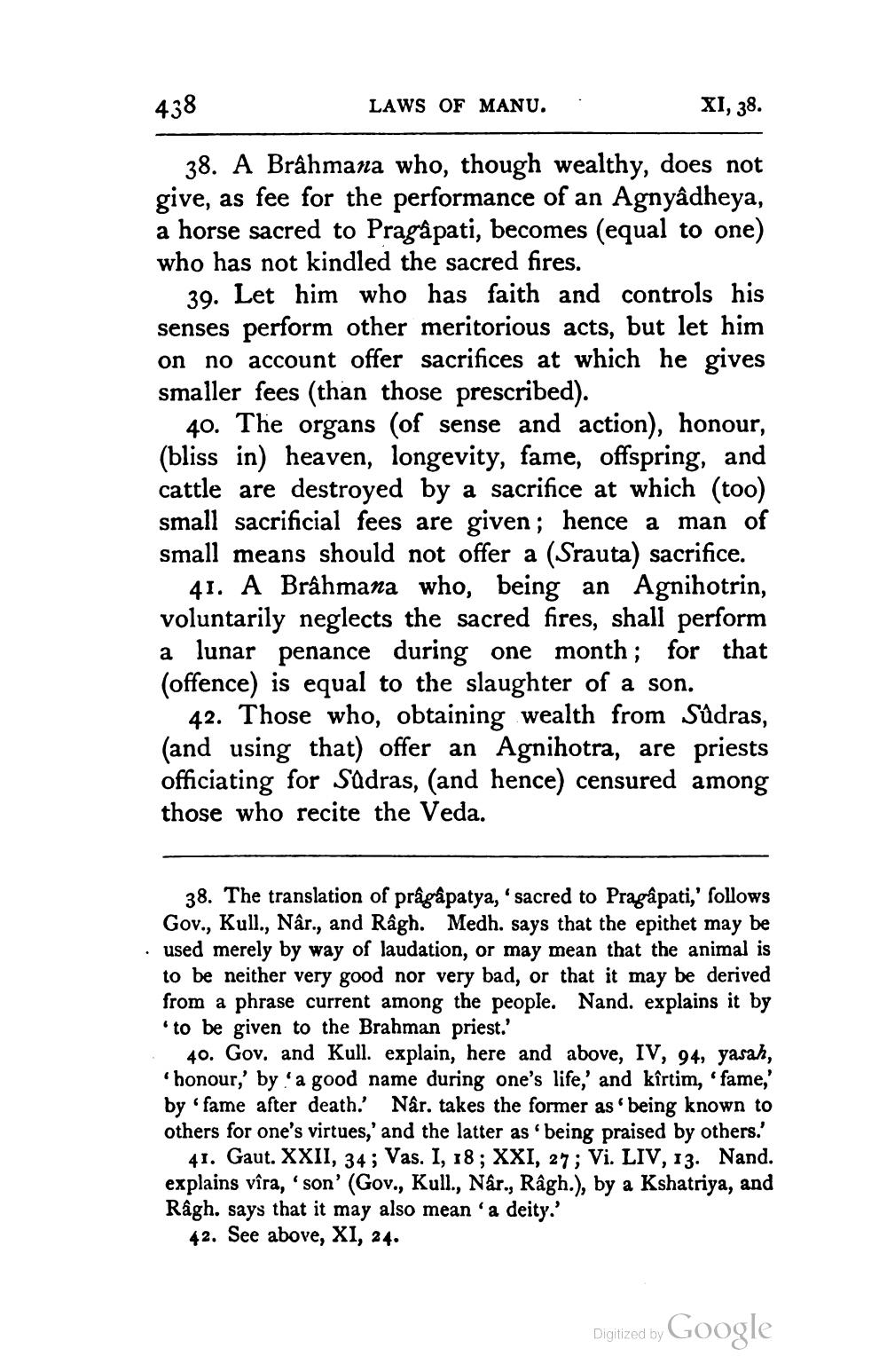________________
438
XI, 38.
38. A Brahmana who, though wealthy, does not give, as fee for the performance of an Agnyâdheya, a horse sacred to Pragâpati, becomes (equal to one) who has not kindled the sacred fires.
LAWS OF MANU.
39. Let him who has faith and controls his senses perform other meritorious acts, but let him on no account offer sacrifices at which he gives smaller fees (than those prescribed).
40. The organs (of sense and action), honour, (bliss in) heaven, longevity, fame, offspring, and cattle are destroyed by a sacrifice at which (too) small sacrificial fees are given; hence a man of small means should not offer a (Srauta) sacrifice.
41. A Brahmana who, being an Agnihotrin, voluntarily neglects the sacred fires, shall perform a lunar penance during one month; for that (offence) is equal to the slaughter of a son.
42. Those who, obtaining wealth from Sûdras, (and using that) offer an Agnihotra, are priests officiating for Sudras, (and hence) censured among those who recite the Veda.
38. The translation of prâgâpatya, 'sacred to Pragâpati,' follows Gov., Kull., Nâr., and Râgh. Medh. says that the epithet may be used merely by way of laudation, or may mean that the animal is to be neither very good nor very bad, or that it may be derived from a phrase current among the people. Nand. explains it by 'to be given to the Brahman priest.'
40. Gov. and Kull. explain, here and above, IV, 94, yasah, 'honour,' by a good name during one's life,' and kîrtim, 'fame,' by 'fame after death.' Nâr. takes the former as 'being known to others for one's virtues,' and the latter as 'being praised by others.'
41. Gaut. XXII, 34; Vas. I, 18; XXI, 27; Vi. LIV, 13. Nand. explains vîra, 'son' (Gov., Kull., Nâr., Râgh.), by a Kshatriya, and Râgh. says that it may also mean 'a deity.'
42. See above, XI, 24.
Digitized by Google




